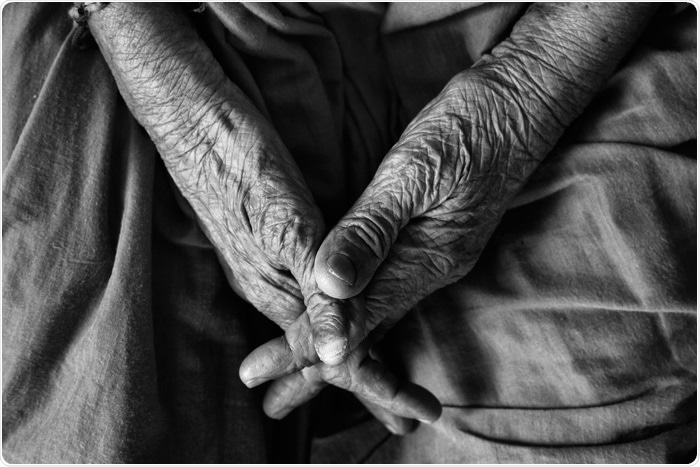Reviewed by Dan Hutchins, M.PhilAug 31 2021
People most probably get sicker as they grow older; however, a recent study by Gil McVean of the University of Oxford and co-workers identifies that the effects of an individual’s genes on their chance of getting sick declines with age. The observations were published on August 26th, 2021, in the PLOS Genetics journal.

The beauty of old age. Image Credit: Vinoth Chandar, Flickr.
The genes inherited from parents impact an individual’s risk for mostly all diseases, from cancer to heart disease to autoimmune disorders. Researchers can now employ new genomic techniques to an individual’s genome to foretell their future disease risk. But current research has revealed that the predictive power of an individual’s genetics may rely on their age, sex, and ethnicity.
In recent research, McVean’s group analyzed the risk of developing a disease posed by carrying specific gene changes as an individual gets older. Put differently, the researchers wanted to understand if there are windows when individuals are more or less likely to develop diseases associated with genetics.
They utilized genomic data from 500,000 people in the UK Biobank to examine how their genetics affect their risk of developing 24 common diseases. Even when different diseases had varied risk patterns, the scientists revealed that a person’s genetic risk is at its peak early in life and later decreases for numerous diseases, including high blood pressure, underactive thyroids, and skin cancer.
At present, it is unclear why the risk posed by a person’s genes lowers with age. Scientists presume that there might be unknown mechanisms at work, like interactions between a person’s genes and their environment that lead to the development of a disease.
Thorough knowledge of how age affects a person’s risk of developing a disease associated with their genes might aid scientists to make more precise predictions if an individual would eventually become sick with that condition.
Our work shows that the way in which genetics affects your risk of getting a disease change throughout life. For many diseases, genetic factors are most important in determining whether you will get a disease early in life, while—as you age—other factors come to dominate risk.”
Gil McVean, University of Oxford
Source:
Journal reference:
Jiang, X., et al. (2021) The impact of age on genetic risk for common diseases. PLoS Genetics. doi.org/10.1371/journal.pgen.1009723.